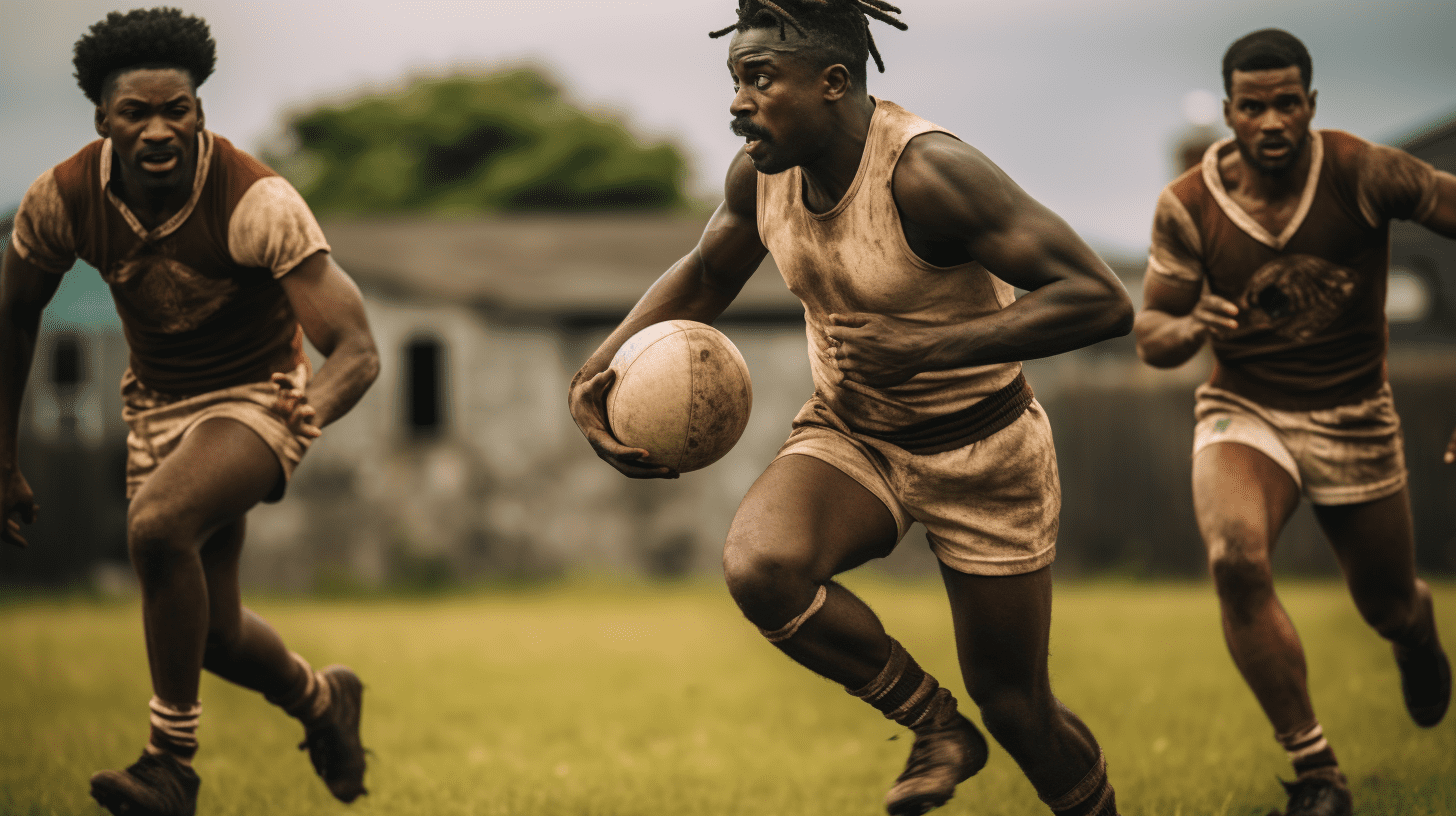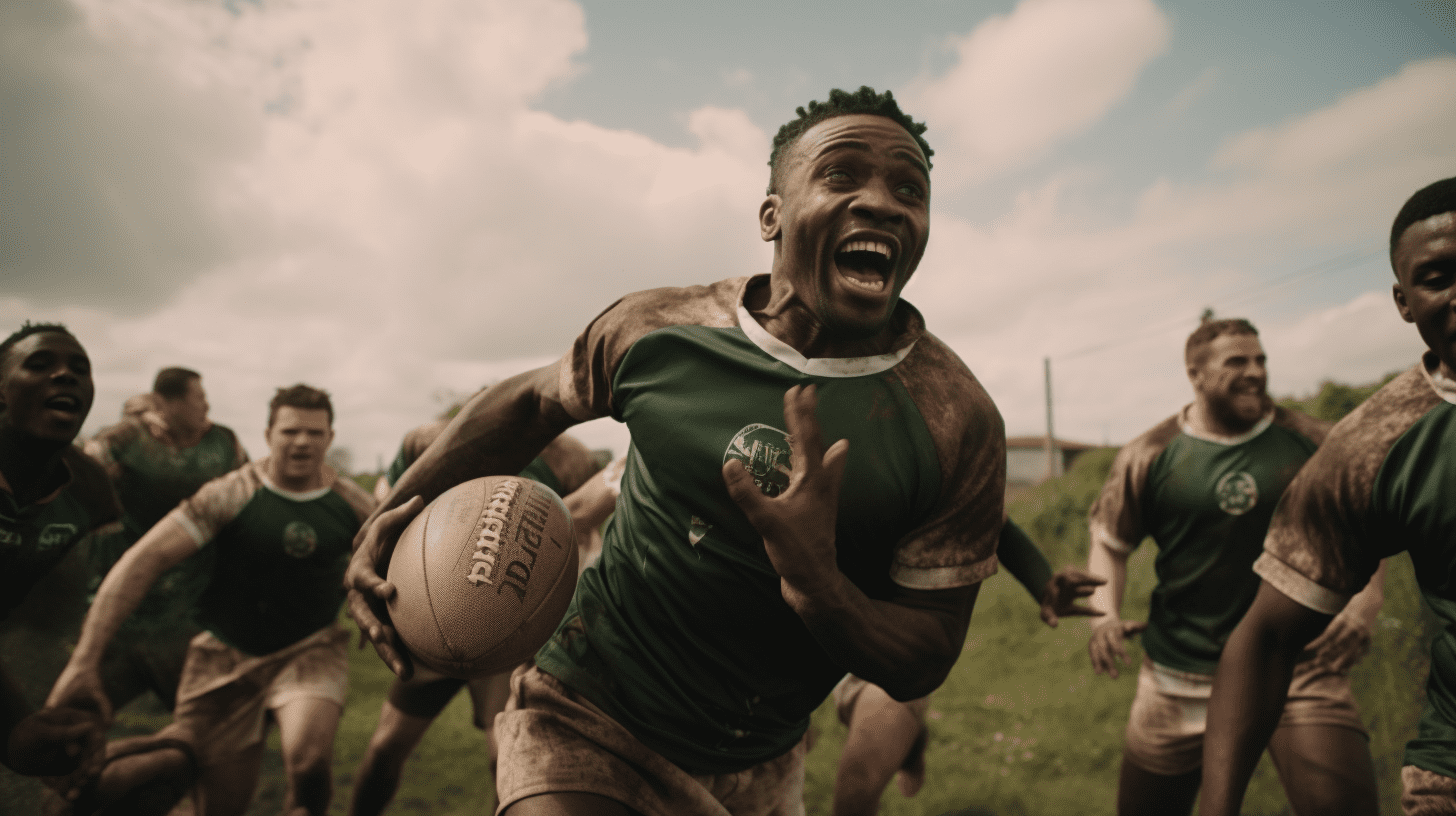- Home
- Wiki
- Learning Center
- The Ultimate Guide to Betting on Gaelic Football: Strategies and Tips
The Ultimate Guide to Betting on Gaelic Football: Strategies and Tips
Gaelic football is a national Irish sport. In Nigeria, betting on Gaelic football is less popular than on the traditional version of the game. Local fans know how to place bets on Gaelic football in legal betting companies.
Gaelic Football: An Overview of Ireland's Traditional Sport
Gaelic football incorporates elements of traditional football, Australian football, and rugby. Women's team competitions are just as spectacular and have as many fans as men's football.
Basic Rules of Gaelic Football
In Ireland, Gaelic football is played by 2 teams of 15 active players each: a goalkeeper, 6 forwards, 6 defenders, 2 midfielders, and 15 substitutes. The game is officiated by 8 field referees. The goal of the match is to score as many points as possible by hitting the ball into the opponent's goal.
Game parameters in Gaelic football:
- The size of a standard rectangular field is 130-145 meters in length and 80-90 meters in width;
- The match consists of 2 periods of 30-35 minutes each, with a 10-15 minute break, the duration varies depending on the level of competition;
- The goals consist of two vertical posts 7 meters high with a crossbar at the level of 2.5 meters, the distance between the posts is 6 meters, the lower part of the goals is covered with a net;
- The leather ball has a diameter of 22 cm and weighs 0.5 kg, the minimum number of shell fragments is 18.

In case of a tie at the end of regular time, the teams play 2 overtimes of 10 minutes each. If the winner is not determined, a replay match is scheduled.
Characteristics of Gaelic Football
In addition to goals, referees also keep track of points:
- When the ball hits the lower part of the goal, the referee raises a green flag, announces a goal, and awards 3 points;
- When the ball is hit into the gap above the crossbar, the referee shows a white flag and awards the team 1 point.
Partial physical contact between players is allowed. Athletes can push each other with their shoulders, like in rugby. Strikes, tripping, grabs, power techniques are prohibited.
The rules allow taking the ball in hands but with restrictions. When moving the ball in the hands, every 4 steps the player has to bounce the ball off the ground or foot.
Transferring the ball from hand to hand is prohibited. A shot at the goal is made by kicking or punching the ball, in another direction it is allowed to kick or hand at the player's choice.
In women's sports, the rules are softer: the match is shorter, the ball is of a smaller weight and size, it is allowed to transfer the ball from hand to hand and pick it up from the grass, any forceful action is prohibited.

Organisation of Gaelic Football Competitions
The main Gaelic football tournament is the annual national championship, which is organized every spring by the non-profit Gaelic Athletic Association. The participants of the championship are Irish clubs and diaspora teams from London and New York.
Outside Ireland, Gaelic football is developed at an amateur level. The championship format is similar to the format of the Euroleague in traditional football.
The competition stages are as follows:
- Among teams within a district;
- At the level of districts within a county;
- Between county teams at a national level.
The final of the Irish Championship takes place on the 35th Sunday of the year at Croke Park in Dublin. The constant honorary guests of the match are the President and the Prime Minister of Ireland.
Types of Bets on Gaelic Football
Betting companies include only Irish competitions in their line-up. The event list usually consists of matches at the county championships level and the country's championship.
Outcomes
Bookmakers offer bets on three possible outcomes: a win for either team or a draw. Technically, Gaelic football rules do not recognize a draw as a final result either in regular time or after overtime.
Teams are assigned an additional replay match to determine the clear winner. A fan can place a bet on a draw, but they should study the rules and nuances of the betting calculations in the bookmaker's office in advance.
Handicap Betting
Handicap bets - these are predictions on the exact outcome of the match, taking into account a conditional advantage of one of the opponents. Handicap bets can be made for the entire game or for a half.
Professionals use handicap betting in Gaelic football when a clear favourite is playing against an underdog.
Total Goals Betting
Bookmakers offer a wide range of totals for the match, for a half, and individually for a club over the championship's duration.
Half / Full-Time Betting
When betting on the "Half/Match" market, a fan predicts the result of the first half and the entire match simultaneously.
For instance, the "Away/Home" option implies that the away team will win the first half and the home team will triumph at the end of the match.
A bet on "Draw/Away" will be successful if the teams finish the first half with an equal score, and then the away team secures a victory.
Long-term Bets
In the bookmakers' lines, you can find additional markets, including outright bets such as:
- Winning the county championship;
- Making it to the national championship final;
- Securing the championship title;
- The title of the best player;
- The player who will score the first or last goal;
- The club's position in the championship league table.

Characteristics of Gaelic Football Betting
Professional players, when making a forecast, take into account the peculiarities of national Irish sports.
Motivation
Victory is a critical element at any level of competition, and Gaelic football is a spectacular and unpredictable sport. This is particularly true for confrontations in the national championship, where each of the 15 teams is defending the honor of their county.
Team Composition and Athletes' Physical Form
The statistics of previous games in Gaelic football do not take primary importance when analyzing. Teams often show inconsistent results. The current form of the team is significant. Particular attention should be paid to finding information about injuries and replacements of goalkeepers and defenders.
Fan Support and Preferences
Fans of Irish sports place bets based on personal sympathies to the team. This approach causes distortions in the line and changes in odds.
The player should keep in mind that the coefficient does not always reflect the real probability of an event happening, so an independent analysis is necessary.
Accessibility of Information for Analysis
To make a forecast for Gaelic football, professional analysts recommend referring to foreign internet resources. Russian-speaking sources mainly post news about the Irish Championship. The official website of the Gaelic Athletic Association www.gaa.ie, Irish fans' forums, and sports community websites contain a lot of useful information.

Recommended Strategies
There are no definitive correct and winning strategies for Gaelic football. Bookmaker clients use universal techniques and enhance their chances of winning bets.
Professional players recommend taking into account a characteristic of Gaelic football when choosing a strategy – approximately 70% of matches are won by the home team. Support from fans at a home stadium strongly motivates even clear outsiders to win.
It's not advisable to bet on the home team's victory without a thorough analysis of other factors. Experienced players suggest choosing outcomes with a probability of more than 50% regardless of the venue of the match.
For example, if the chosen club has no obvious problems with the squad and is playing against an equally strong or weaker opponent at their home stadium, the chances of winning are high.
The bet size is determined in accordance with conservative financial management, for example, the "Flat" strategy.
Pros and Cons
Pros:
- Small number of teams in the top league: With only 15 participants, it may be easier to keep track of team performance, player changes, and overall league dynamics.
- Chance to find valuable odds: Due to the sport's relative obscurity outside Ireland, there could be discrepancies in bookmaker odds, providing opportunities for value betting.
- Large number of main and additional markets: This offers variety and flexibility in betting, which can increase the chances of making a successful bet.
Cons:
- Possibility to bet only on one championship: Limited to the Irish championship, which can restrict the variety and frequency of bets.
- Absence of the discipline in the lines of most bookmakers: This indicates that many bookmakers may not offer bets on Gaelic football, limiting options for those who wish to bet.
Summary
Betting on Gaelic football is an unpopular but promising direction. Low competition among players and the ability to find a value coefficient increases the probability of winning.
FAQ
Gaelic football is a sport that originates from Ireland, played between two teams of 15 players each. It is one of the few remaining strictly amateur sports in the world, with players, coaches, and managers prohibited from receiving any form of payment.
In Gaelic football, the ball can be kicked or punched into the goal for 3 points, or over the crossbar between two uprights for 1 point.
No, Gaelic football remains strictly amateur. The highest level of competition is the All-Ireland Senior Championship, organized by the Gaelic Athletic Association.
Betting on Gaelic football can be done through some bookmakers who offer bets on the outcomes of the matches, similar to other team sports. However, betting options may be limited due to the sport's relative obscurity outside of Ireland.
While primarily played in Ireland, Gaelic football has been exported overseas to some extent. There are many clubs in the United States, Australia, and the United Kingdom, among others, that play Gaelic football.
Gaelic football is a distinct sport that, while having some similarities to soccer and rugby, has its own unique rules and gameplay. It's more hands-on than soccer, as players can handle the ball, and less physical than rugby.
Absolutely! Women's Gaelic football is very popular and has its own governing body, the Ladies' Gaelic Football Association. The women's version of the sport is as well-regulated and competitive as the men's version.

Comments0